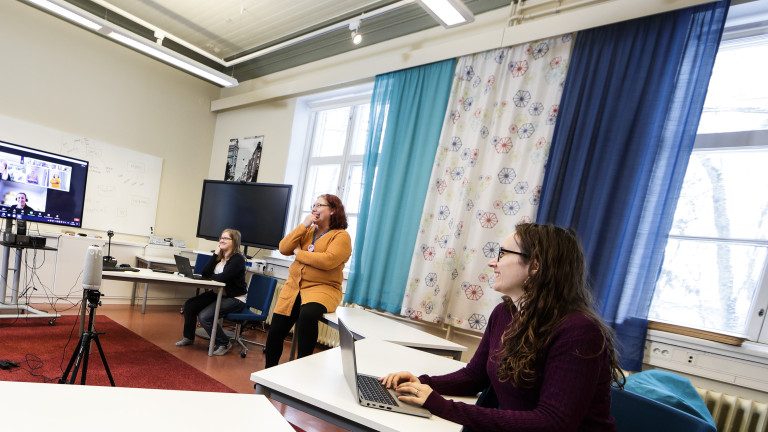The starting points for the pedagogy of communication and language studies are interaction and student-centered learning. Learning is a communal experience where, through discussion and reflection on perceptions and experiences with others, students develop a sense of belonging and their personal professional identity. Verbal skills, in particular, are difficult to assess if the student and teacher only interact remotely. On the other hand, studying remotely can give students a sense of empowerment and increase their confidence, for example in presenting, if they can participate in classes in a familiar environment.
At Movi we focus on giving students a sense of belonging when they participate in language and communication studies regardless of the mode of teaching. For both students and teachers, developing a sense of belonging is influenced by factors such as the learning environment and the interactive relationships that are formed within it, the opportunity to influence things, the experience of being valued, individual characteristics and received support For an example, see this blog post on building a sense of belonging (in Finnish). Through our pedagogical solutions and curricula, we aim to provide the best possible support for strengthening students’ skills at different stages of their studies, from their first year at university to their doctoral studies.
We also work to keep up to date with pedagogical developments and the use of different applications in our teaching. At Movi, we see AI as an assistive intelligence that, when used ethically and appropriately, enhances and supports students’ learning and skills. For students, we have created guidelines for the use of AI-based applications in studies at Movi as a supplement to the general guidelines of the university.








